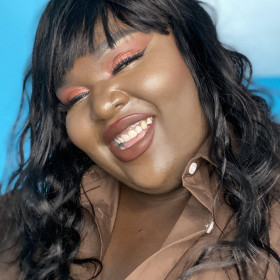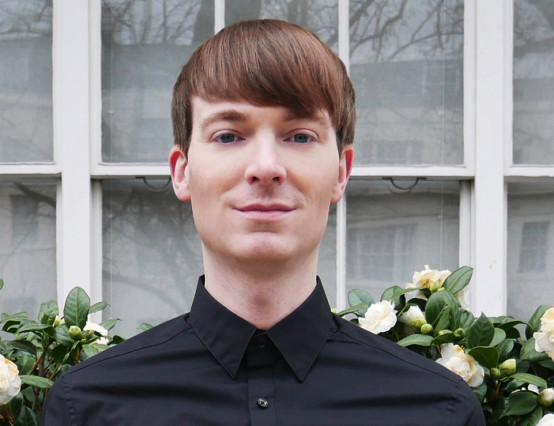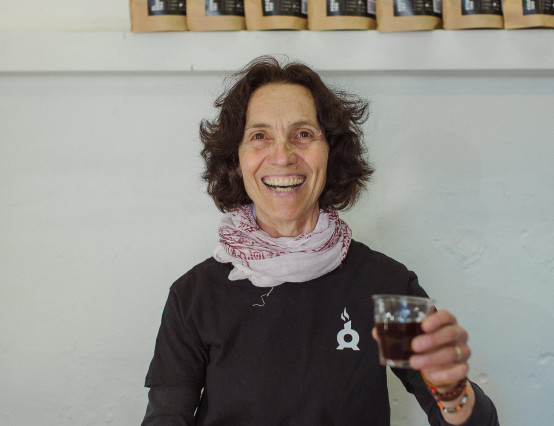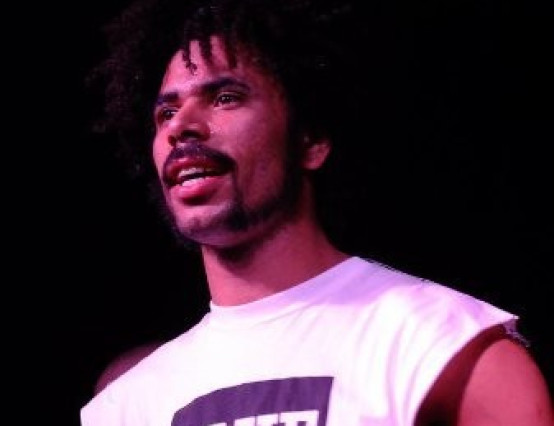Could you first introduce yourself to the reader?
I’m Michael J. Diamond, a London-born director of branded content and narrative films. I’m passionate about stories relating to the working-class experience and strive to represent diverse voices in my productions.
What does your job involve? What happens on a typical day?
Most self-employed people would agree that there’s no 100% typical day, but my week usually encompasses client calls, writing treatments, tracking my expenses/business outgoings, and keeping connected with other creatives. Depending on what projects I have on, I can be working with editors on films we have in post-production or working with a producer/director of photography/production designer to plan various elements of an upcoming shoot.
Sometimes I’ll be on location or in a studio for a shoot and that will take up the whole day - it’s incredibly varied and I’m rarely in exactly the same place for long.
What’s great about what you do?
Being able to bring your creative vision to life is equally stressful and rewarding, but it brings purpose to my life - especially with projects capable of social impact. I love having the opportunity to work with people I respect, admire and enjoy the company of.
I can often set my own schedule and I don’t have to answer to a boss which makes me feel like I’m always working towards my own goals and not someone else's. Working with clients on projects sets a tone of mutual respect that you might not get in a traditional workplace.
What are the toughest parts of your job?
Being your own boss sounds great on paper, but not having anyone else to hold you accountable can be so detrimental to your work life and even your earning potential. I can’t stress enough how difficult it is when you’re new to freelancing and the paydays are erratic (if they come at all) - that’s something that doesn’t necessarily change down the line. You’ll always have the occasional dry spell.
When it comes to making films, sometimes you have to move mountains. To get a film from initial idea to funded, to production, to wrapped up in post can be a monumental undertaking. The amount of people, favours, and resources needed along the way is unreal. I’m quite introverted - so having to be a people person to get things done is a learned skill (one I’m still developing) and something that burns me out quite quickly.
What are the highlights of your career to date?
I have been lucky to travel with work - I’ve been to North America, Europe, and the Middle East for projects. The connections I’ve made are a major highlight for me - other creatives that care about what you do are colleagues that turn into close friends.
I’m very close to launching a funding campaign for a new short film, but there’s a long road ahead in terms of my career. I feel like the real highlights are yet to come and that’s something that keeps me driven.
What’s been the biggest challenge so far in your career? How did you overcome it?
The biggest challenge I’ve overcome was a tough spell of anxiety in my mid-20s. At the time I was struggling to figure out how to make things work in terms of career direction and I didn’t have a lot of money, which exacerbated the situation. Admitting having a problem was tough because of the stigma surrounding mental health (especially relating to young men), so I suffered longer than I should have. I eventually got help and did some talking therapy - this enabled me to reframe things and gave me the tools to retain control in the face of adversity.
What was your career path into this job? Have you also worked outside the arts?
I did not do great in school, and I never imagined myself going on to higher education. Nobody in my family had been to university, so I wasn’t sure about it, but I did eventually make it there.
After I graduated, I worked as a runner for Channel 5 and various other production companies alongside doing freelance camerawork and editing before moving into directing. Nobody has ever asked about my school grades or uni degree!
I worked in retail before uni and continued to do that along with bar work to help with finances while I studied.
Have you noticed any changes in the industry in recent times? If so, what?
Changes in technology have made film so much more accessible. Both in terms of kit and online platforms to showcase your work. Awareness of mental health and improved diversity over the last 10 years has changed the type of content we see and the people involved in it.
Short-form films have blown up with the rise of social media and companies have taken Instagram, Facebook, and TikTok very seriously. Commercials on YouTube are often the same as on TV - the lines are completely blurred.
How has your background, upbringing and education had an impact on your artistic career?
My background has influenced the subjects I care about and the challenges I’ve had to overcome feature in the stories I want to tell. Growing up in a very low-income household without a dad around gives me an angle with my storytelling and has driven my passion for films that can start conversations and make change happen.
You’ve been granted the ability to send a message to 16-year-old you. What do you say?
If I only had a brief moment, I’d tell him; things are going to get a lot harder for you, but you’ll find your way. You are capable of more than you know, you have been stronger than you realise and you are worth more than people say.
Do you have any advice for young people interested in your field?
Yes, don’t worry about not knowing anyone in the industry. Don’t worry about your poor exam results affecting your career. Go online and watch tutorials on how to film, direct, edit, and do it. Your smartphone is more powerful and capable than some of the kits I had when studying. If you can’t get on set as a production assistant, sign up to casting agencies and experience film sets as an extra.
Ultimately, don’t do it for the money, do it because you love it and have a passion for it. And this one is very important; don’t quit! The best people don’t make it, the ones that stick around do.
Where can people find you and your work online?
My work can be seen on my website; www.mjdiamond.com and via my production company; www.weightfilms.com
IG: @michaeljdiamond







0 Comments